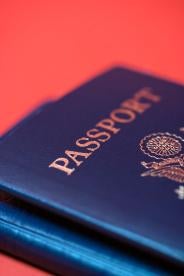In today’s Federal Register, U.S. Customs and Border Protection (CBP) announced that it will transition Reconciliation entry processing to the Automated Commercial Environment (ACE) beginning July 8, 2017. This is the third time that CBP has announced a date for transitioning Reconciliation entry processing to ACE, only to delay when the date arrived. It is likely that this third time will be the charm though, and Reconciliation entry processing will transition to ACE beginning next month.
Reconciliation allows an importer, using reasonable care, to file entry summaries with CBP with the best information available to it, with the mutual understanding that certain elements, such as any required adjustments or additions to the declared value, remain outstanding. At a later date, up until 21 months from the date of entry, when the corrected entry information has been determined, the importer can then file a Reconciliation entry that provides the final information. The Reconciliation entry is then liquidated, with a single bill or refund, as appropriate.
On July 8, 2017, CBP will begin a test where Reconciliation entries are processed through ACE. The test will be administered pursuant to the guidelines in a Federal Register notice published on December 12, 2016. That Federal Register notice announced several important changes that will affect the Reconciliation filing process when it transitions to ACE. These include:
-
Mandatory use of ACE for filing Reconciliation entries, even if the underlying entries were filed via ACS;
-
Importers no longer needing to apply to CBP to participate in the Reconciliation program, simply having a Reconciliation bond rider will suffice;
-
The elimination of Reconciliation processing ports, so that when Reconciliation entries are filed in ACE, importers may choose the port with which to file;
-
CBP will no longer blanket flag an importer’s entries for Reconciliation; beginning July 8, importers will have to request their customs brokers flag entries and monitor brokers’ compliance with this instruction;
-
CBP’s willingness to consider, at its discretion, requests for retroactive flagging of entries in the event entries are inadvertently not flagged (this can only occur if the request is made at least 60 days prior to liquidation, so customs broker monitoring on a timely basis is key);
-
The elimination of hard-copy Reconciliation entries because all entries will be filed through the Automated Broker Interface (ABI) into ACE;
-
A new requirement that importers indicate whether any of the underlying entries in a Reconciliation entry were subject to a prior disclosure; and
-
The elimination of certain data elements, such as no-change Reconciliations will only need to identify the underlying entry numbers and original entered values, duties, and fees not being reported for aggregate or entry-by-entry Reconciliations.
CBP will also no longer provide the MasterFile Extract and Liquidation Extract Reports to importers that provided detail on entries flagged for Reconciliation. Importers may utilize ACE reports to identify those entry numbers going forward. For an unknown limited amount of time, ITRAC reports will also still be available; though it is likely they will be discontinued as well.
While we look forward to certain aspects of CBP’s transition of Reconciliation entries to ACE, such as the elimination of reporting of original values, duties and fees, there are some aspects of which we are wary. In particular, because CBP can no longer blanket flag entries and will only grant retroactive requests to flag at its discretion and for a limited amount of time, it is very important to both trust and monitor your customs brokers’ entry flagging.
Importers can work with their customs brokers to enact a blanket flag, just as CBP had been doing, or if they had been entry-by-entry flagging, work with their customs brokers to mimic the conditions for which they had been previously flagging their entries. Additionally, given the glitches we have seen when other programs have transitioned to ACE, and the fact that many Reconciliation entries are due in October, importers and CBP should allow ample time to sort things out before the first Reconciliation due date arrives.




 i
i


